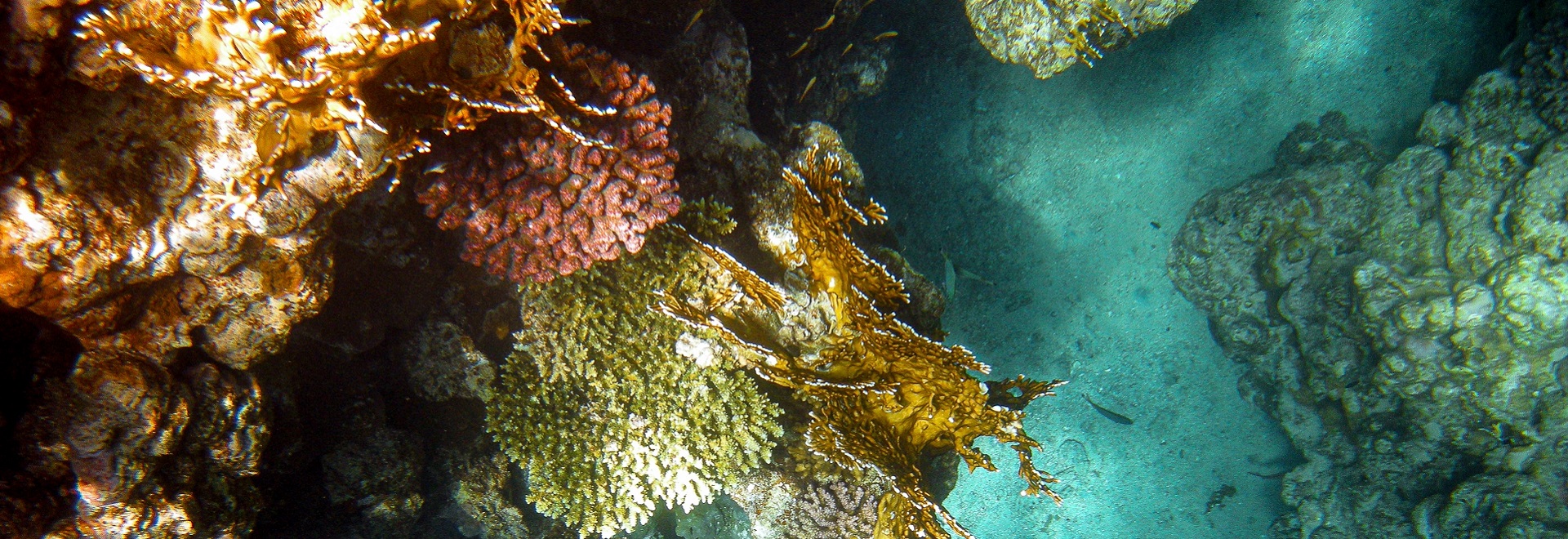Historically, the duties of trustees were clear: trustees were trusted to administer land and property whilst the settlor (typically a knight) was off fighting a war!
Between then and now lie hundreds of years and the concept of trusts and the duties of the trustees have evolved. However, the fundamental principle has remained – trustees must always act in the “best interests” of the beneficiaries of the trust. When interpreting those magical two words, the trustees’ duties are, like fiduciary duties, typically interpreted to be financial benefit. Most trustees will operate on the basis that “best interests” means maximising financial return for the appropriate level of risk.
Global crises need global solutions
The question is, given the global climate crisis, biodiversity loss and rise in pollution, that have changed our world as we know it, should trustees consider the impact of these forces on the interpretation of their fiduciary duties? What responsibility should trustees be taking to address these challenges but also what opportunities does this present?
It is crucial to look at the level of risk the trustees are facing, and the type of assets affected.
It is now commonly accepted that failure to act on the climate crisis represents an existential risk across our society, the natural environment, and the global economy. The Paris Agreement, as adopted by 195 supporting countries in 2015, aims to keep global temperatures to well below 2°C above pre-industrial levels by 2100 and strives for a maximum 1.5°C rise in the overall global average. To achieve these levels, global greenhouse gas (GHG) emissions need to be halved by 2030, we need to reach ‘net zero’ around the mid-century and effectively be carbon negative as we approach 2100. The scale and speed of the transition needed is unprecedented and will require rapid and far-reaching transitions globally. Furthermore, even if temperatures are limited to 1.5°C, significant investment to adapt to the physical, societal, and environmental impacts of the climate change will be needed.
According to the McKinsey Global Institute, to reach net zero over the next 30 years, US$9 trillion of finance will be required annually to support energy and land use systems as part of the net-zero transition and governing bodies are clearly not able to finance this on their own. The current estimated financing gap is between US$3-US$5 trillion per annum. Thankfully, many global corporations have become alive to their responsibilities and have begun to re-engineer business models, policies, and frameworks. McKinsey’s 2022 report on ‘the net zero transition’ confirmed over 1,045 companies have already committed to science-based targets for emissions reduction, representing available market capitalisation to the tune of €20.5 trillion. As such, the drivers to achieve climate neutrality are now an unstoppable force within many corporate sectors globally.
But governmental and corporate capital do not go far enough. The need for private capital to contribute to this challenge has never been clearer. A significant component of private capital sits in trusts.
A long term view
Most private client trusts are typically set up with a long-term view as they serve as succession planning vehicles that should span generations. By extension, in fulfilling their duties, trustees should take a long-term view on the existing assets within those structures. These assets are invariably located all over the world. As we know, climate events are not limited to specific countries, and they can strike suddenly with material impact to lives and assets. When monitoring or acquiring trust assets, it seems logical to consider the impact of climate change on them.
The World Economic Forum’s 2021 ‘Global Risks Report’ places climate action failure in the top two risks by likelihood and by impact over the next 10 years, with extreme weather events being the top risk by likelihood. Environmental and biodiversity issues are less visible to those of us living in cities, but the science is showing the shocking scale of destruction.
The insurance market has been, for many years looking at climate risk as a material component of the spectrum of factors that can lead to loss. In 2017 the insurance giant AXA warned that a 4-degree Celsius warming would make the world “uninsurable”. The 2018 UN report noted that increases at such levels would lead to intense heatwaves, risking sea levels and loss of wildlife. Worryingly, the latest figures from the EU climate service announced that 2023 marked the first year where global warming exceeded 1.5C across an entire year.
It is therefore surprising that these risks are not discussed more by trustees in the context of asset investment and fiduciary duties. The impact of climate change will inevitably have a marked effect particularly to dynastic structures.
The trustee’s dilemma
The dilemma for trustees is currently that not all impact investments deliver a financial return, at least not short term, and that the traditional interpretation of “best interests” in the trust context linked to a financial benefit does not necessarily match the evolved needs and expectations of the next generations.
There is currently a lack of suitable case law to guide trustees through this dilemma, answering the question as to whether impact investing without any financial return can be made under a standard discretionary trust. The available case law is either very outdated (Re Clore’s Settlement (1966)) and was therefore not able to consider today’s issues or was not made in a standard discretionary trust scenario (Butler-Sloss/the May Trust case).
Some trustees argue that there is no need for change and that sustainable and impact investing do not need to be incorporated as part of a standard discretionary trust. Existing vehicles such as charitable and non-charitable purpose trusts are often considered as a more than sufficient way to cover the revolutionised needs of the next client generation. Charitable and non-charitable purpose trusts are established and have ample guidance and case law to direct trustees in relation to philanthropy and charity. However, a charitable trust will cater only for the charitable purpose but is not set up for the benefit of the private client family.
The clients’ expectations
There is momentum from a growing number of beneficiaries to be doing good with the family wealth and trustees need to be positioned to cater for this ask. These families put immense value on their reputation. Society expects such families to do good in their communities and these families recognise this responsibility. They do not wish to segregate their trust assets. Instead, they want their wealth to be seen holistically and for it all to be applied in satisfying that responsibility.
We are also seeing a shift in society (particularly the younger generations) away from capitalism towards a more socialist stance and populism. When considering the reputation of the family, the legacy they wish to leave behind, and the sentiments of their heirs who may feel conflicted about inheriting wealth that was not generated or deployed in a way they consider ethical, it is difficult to justify divorcing the needs of the planet their children will inhabit from the wealth they will inherit, even within the reductive definitions of “best interest”.
While differences of opinion may prevail for some (particularly along generational lines between settlors and beneficiaries), for the majority of settlors, the most important driver is to create a stable future for their children. Against the backdrop of an escalating climate crisis, and the urgent need for capital to both stabilise the crisis and evolve infrastructure to adapt to a new normal, the interest of many private clients appears no longer purely financial, but also the prevention of climate escalations that will otherwise lead to an unstable existence on a crisis-riddled, inhospitable world beyond repair.
Proactive trustees
In the absence of legislation or evolved case law but with the undeniable evolution of thought, scientific understanding, sentiment and the environmental and social contexts surrounding non-financial “best interests”, trustees will need to tread carefully, working closely with clients to understand their priorities and documenting these meticulously. They will also need to exert care in the selection of investment and other asset managers to ensure that they are authentic and comprehensive in their operations, not merely paying lip-service. New legal frameworks, standardisation of reporting and greater transparency that are currently being developed will assist trustees to make informed decisions and cater responsibly to the needs of their clients.
In the meantime, we have identified a number of steps trustees can take to prepare themselves for the sustainability revolution which you can find in our recent article, ‘Why ESG is old news‘.
We have also partnered with Equilibrium Futures to develop the first ever Sustainable Finance training course dedicated to International Finance Centres. This eight-module video series is led by global though-leader and sustainability expert Andrew Mitchell. Designed with a focus on IFCs like Jersey, the course addresses the specific needs and challenges faced by professionals operating within these financial centres. As the global demand for sustainable finance continues to surge, this comprehensive training programme provides a unique opportunity for financial professionals to enhance their expertise and stay ahead of the sustainability curve. Discover more about the course here.
Sources:
Bronwyn Clare (2021). Insurance industry must align to Paris Agreement, starting now. Cambridge Institute for Sustainability Leadership (CISL).
Mark Poynting (2024). World’s first year-long breach of key 1.5C warming limit. BBC News.
Grant Thornton (2023). ISSB sustainability symposium – what happened? Grant Thornton Insights.
Jersey Finance (2021). Virtuous Circles: Sustainable Family Governance Models in an Evolving Environment. Jersey Finance Research Report.


